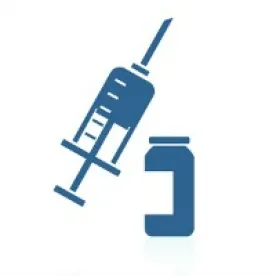The Centers for Medicare & Medicaid Services (CMS) recently announced a one-year delay in finalizing the long-awaited and closely watched rule addressing the 60-day deadline to return Medicare and Medicaid overpayments (the “60-day rule”). In its notice, CMS acknowledged that it must address “significant policy and operational issues” before finalizing a workable 60-day rule. As a result of “exceptional circumstances” (including more than 400 public comments), “internal stakeholder feedback,” and ongoing collaboration with both the Office of Inspector General for the Department of Health and Human Services and the Department of Justice, CMS will publish the final 60-day rule more than three years after it published the proposed rule.
As background, the 60-day rule will implement Section 6402(d) of the Affordable Care Act (ACA), which created section 1128J(d) of the Social Security Act requiring a person or entity who has received an overpayment to report and return the overpayment to the appropriate entity by the later of: (1) 60 days after the date on which the overpayment was identified; or (2) the date any corresponding cost report is due (if applicable). Significantly, the ACA also made retaining an overpayment past the 60-day deadline an “obligation” under the False Claims Act’s (FCA) “reverse” false claim provision and therefore the basis of FCA liability. As a result, the contours of the final 60-day rule will have a substantial bearing on the scope of FCA liability.
CMS published a proposed rule three years ago on February 16, 2012. One central, thorny issue that may be causing the delay in finalizing the 60-day rule is how to define when an overpayment has been “identified” and the 60-day clock starts to run. The proposed rule defined the term “identified,” but left many questions unanswered. According to the proposed rule, an overpayment is “identified” if the provider or supplier has actual knowledge of the existence of the overpayment or acts in reckless disregard or deliberate ignorance of the overpayment. This definition is consistent with the definition of “knowledge” under the FCA but may be difficult to apply in practice.
Although 60-day rule has not been finalized, cases have started to emerge that shed some light on potential FCA liability for retaining an overpayment beyond the 60-day deadline and the necessity to act quickly once an overpayment has been identified. Two recent cases exemplify both the complexities of deciding when an overpayment has been “identified” and the potential for growth of enforcement activity over the retention of overpayments under the FCA, even in the absence of a final 60-day rule.
In United States v. Continuum Health Partners, Inc. et al., Civil Action No. 11-2325 (S.D.N.Y June 27, 2014), the United States intervened in an FCA qui tam lawsuit alleging violations of the ACA’s 60-day overpayment provision and filed a Complaint in Intervention. The United States alleges that Beth Israel Medical Center, St. Luke’s-Roosevelt Hospital Center, and Continuum Health Partners (which operated the hospitals),knowingly failed to return overpayments owed to Medicaid. The complaint asserts that, as the result of a computer glitch, the defendants purportedly billed the managed care organization Healthfirst, Inc. for services rendered to Medicaid managed care beneficiaries and then also billed Medicaid for the same services. After purportedly being informed by the New York State Comptroller’s Office that this potential billing issue was affecting a small number of claims, Continuum conducted an internal investigation. The Complaint in Intervention alleges that, through its investigation, Continuum identified over 900 potentially improper claims to Medicaid, totaling approximately $1,000,000 in reimbursements. Continuum allegedly failed to repay the Medicaid overpayments within 60 days after identifying improper claims and instead repaid only “small batches” of the affected claims over the next two years. The Complaint also asserts that 300 of the affected claims were repaid only after the United States issued a Civil Investigative Demand to Continuum concerning these payments.
The second case, another FCA qui tam action, although not squarely addressing the 60-day rule, tackled the application of the term “knowledge” of an overpayment under the FCA (the same standard used for the term “identify” under the proposed 60-day rule). In United States ex rel. Keltner v. Lakeshore Med. Clinic, Ltd., No. 11-CV-00892, 2013 U.S. Dist. LEXIS 44640 (E.D. Wis. Mar. 28, 2013), the relator alleged that the defendant violated the “reverse” false claims provisions of the FCA and the Wisconsin FCA, by, among other things, failing to return overpayments. Through its audits, Lakeshore Medical allegedly discovered that two physicians purportedly “upcoded” claims and had an error rate greater than 10 percent. Although Lakeshore Medical repaid the erroneous claims identified during their audit, the relator alleged that Lakeshore Medical did not review any of these two physicians’ additional claims and that Lakeshore Medical later stopped auditing the two physicians.
The court denied defendant’s motion to dismiss the relator’s claims and allowed the relator’s “reverse” false claim allegations to proceed. The court explained that the term “knowingly” in the FCA includes actual knowledge as well as deliberate ignorance or “reckless disregard of the truth” and concluded that relator sufficiently alleged “that defendant ignored audits disclosing a high rate of upcoding and ultimately eliminated audits altogether.” As such, the relator’s allegations “plausibly suggest[ed] that defendants acted with disregard for the truth and submitted some false claims.”
Even without a final rule, CMS reminded “all stakeholders” that they are subject to the statutory requirements of Section 1128J(d) and could face potential liability under the FCA and Civil Monetary Penalties Law, as well as exclusion from Federal health care programs for failure to report and return an overpayment. As a result, providers and suppliers should act quickly when investigating potential overpayments and document all steps in the investigation to ensure the ability to demonstrate that, consistent with the proposed 60-day rule, the inquiry was “reasonable” and conducted with “all deliberate speed.”




 />i
/>i
